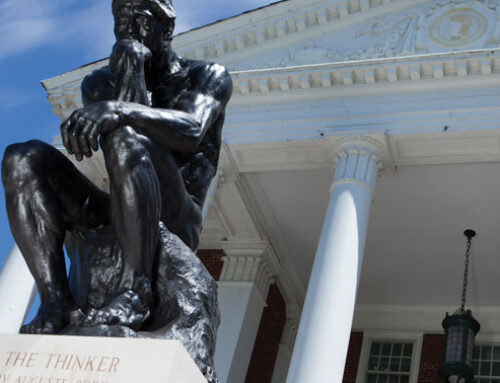By Joshua Davis–
Once again the University of Louisville has pulled together some fantastic speakers for a lecture series that was kicked off this past Friday. Juliet Schor, a Professor of Sociology at Boston College and prolific author, spoke to the lecture group via Skype. This was not simply for her convenience but was a gesture showing that cutting down on travel and reducing the carbon footprint does not need be in lieu of a diverse and productive livelihood. Schor has released seven books, one of which, “The Overworked American: The Unexpected Decline of Leisure,” is a national bestseller. She is currently finalizing the publication of her eighth, which will continue to convey her message of conservative lifestyle and self-reliance.
Friday’s lecture pulled together Schor’s idea of the New American Dream. In a world of where those employed are made to work 40 – 60 hours a week while others are not employed at all, social strains have come to a critical point. The current system of employment and the subsequent lifestyle is hurting not only the economy but also the citizens who are dependent on it. Because consumers are so strained, the little free time they earn is spent trying to frantically enjoy all the products and services they work so hard to pay for. Though this is not singularly a phenomenon in the United States, it’s the best example for what can go wrong when too few people are asked to work far too long.
Schor proposes a solution. Her vision for working class families is one where self reliance leads to feelings of self worth and pride. Consumers have become too separated from the products they own and, because of it, feel far less invested than they should. There must also be a respect for those who craft those products and the work involved in the production. It is the perfect opportunity for the do-it-yourself revolution to flourish.
The biggest boost to the economy would be to lower the total working hours of those employed 40 to 60 hours, down to 20 to 30. Though this may seem counter intuitive, it would allow more hours of free time in which people spend their hard earned cash. There is the issue though that working less means having less of that cash. People who have the free time will, most of the time, find themselves wanting to start projects. This is also inspired by having less income and needing to build or grow products, instead of spending money on a cheap, low quality, non-U. S. product. If everyone becomes involved, people will find that some are better at building while others are better at growing food. Local community connections would be made and as money exchanged hands, it would stay within the community and not into international corporations.
Because these products would be small scale and local, the footprint would be substantially less. In order to make more profit, individuals will be looking for scrap and other inexpensive materials, thus aiding in the reduction of construction waste. These exact things are happening already across the United States. The west coast is on the forefront of the ecologically conservative DIY movement, with many entrepreneurs making a substantial and satisfying living.
Schor made an important note, this movement is very much a young person’s game. It is up to the generation of students growing up in these economically and ecologically tumultuous time to look to each other for social growth. Only by building small-scale economies on a community level will people finally start to feel relief from recessions and job loss.
There are two more lectures in this series, the next being on March 2 at 1:00 pm. The speaker will be Davis Ruccio, Professor of Economics at Notre Dame. More information can be found at louiville.edu/socialchange or by calling 852-0453.
[email protected]
Photo/Flikr: BostonCollegeFlikr




